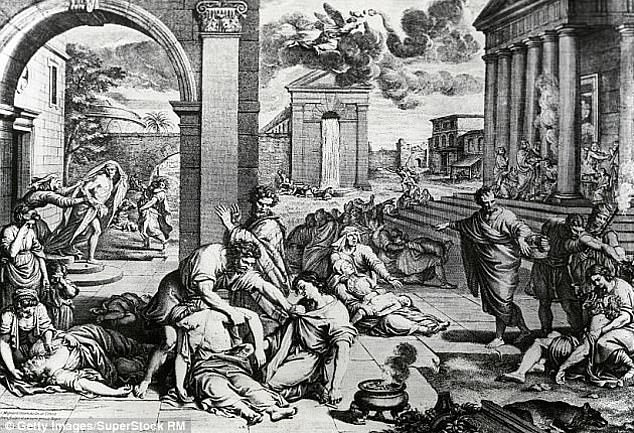amorphous_constellation
Well-Known Member
Yeah from what I heard of what people did to each other in the Middle Ages, get that era far away from me!
come on, it could turn out to be like a spiritual boot camp
Welcome to Religious Forums, a friendly forum to discuss all religions in a friendly surrounding.
Your voice is missing! You will need to register to get access to the following site features:We hope to see you as a part of our community soon!
Yeah from what I heard of what people did to each other in the Middle Ages, get that era far away from me!
I think I'll pass, thank you.Would you live in the heart of the middle ages if your faith benefited
.

Never. Never never never.
Each age interprets Judaism for itself. It is a religion that is constantly unfolding.
On the other hand, modern society benefits infinitely from things such as modern medicine and technology. I would never give that up. Are you kidding? Suffer through the Plague and have no idea what caused it and have no antibiotics? And then there is the issue of how Christians treated Jews. Oy veh!
I ask this because people in the past clearly lived closer to the bone, and so many modern criticisms of faith did not exist. This probably applies broadly to a great selection of faiths, but I suppose in asking this, I am focused on Abrahamic faiths.
As one example of faith over matter, some people in our modern times have had an impulse to refuse modern medical care, (as opposed to faith healing) it's been in the news a few times I think. In the middle ages, no one would criticize you for that. And furthermore, the modern fear we experience when thinking about death would be severely excoriated, as we have it on record that pre-modern people literally saw tumors and lion's teeth as forms of divine supplication.
Another is the fact that you will possibly be able to live a truly humble life, and will toil as close to the earth as Adam ever did. One needn't quote the many remarks about how necessary this is to piety, that you be simple, humble, and meek. Your simple and hard life among the oxen and chickens would not make your mind fertile for sin, and you may even have the opportunity to become a construction worker on a large church. Instead of this, you likely lead a highly distracted life dominated by tv, the internet, temptation, gridlock etc. etc.
I ask this because people in the past clearly lived closer to the bone, and so many modern criticisms of faith did not exist. This probably applies broadly to a great selection of faiths, but I suppose in asking this, I am focused on Abrahamic faiths.
As one example of faith over matter, some people in our modern times have had an impulse to refuse modern medical care, (as opposed to faith healing) it's been in the news a few times I think. In the middle ages, no one would criticize you for that. And furthermore, the modern fear we experience when thinking about death would be severely excoriated, as we have it on record that pre-modern people literally saw tumors and lion's teeth as forms of divine supplication.
Another is the fact that you will possibly be able to live a truly humble life, and will toil as close to the earth as Adam ever did. One needn't quote the many remarks about how necessary this is to piety, that you be simple, humble, and meek. Your simple and hard life among the oxen and chickens would not make your mind fertile for sin, and you may even have the opportunity to become a construction worker on a large church. Instead of this, you likely lead a highly distracted life dominated by tv, the internet, temptation, gridlock etc. etc.
Declining morals, public corruption, unemployment, inflation, urban decay and increased military spending are a few of the theories cited as what occurred in the Dark Ages and one of the reasons it's called the Dark Ages because spiritual enlightenment was not pursued. The Messiah had been rejected and this led to a 1,000 years of darkness. I think I heard somewhere that the average life expectancy was 30 years old. Plagues were commonplace. The Middle Ages, or medieval time, is generally believed to have started with the fall of the Roman Empire in 476 and to have lasted about 1,000 years until about 1450. Although religion existed, this was a time of spiritual darkness where the Roman Catholic Church few held sway over the uneducated many.
